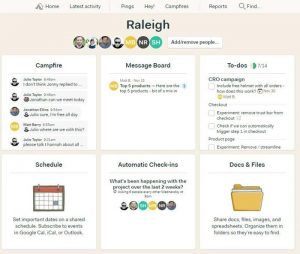Working as a freelancer is not for everyone. Ask someone who went from freelance self-employment back to a full-time job about some of the pitfalls of freelancing. You may be entertained, but you are sure to get a ton of different answers. The real traits of a successful freelancer vary a bit.
Ultimately, freelancing is a meritocracy. If you do great work and hustle to find clients, you will rise to the top. If you struggle to stay on top of your projects, you will sink to the bottom.
Here are five traits of successful freelancers.
1. You must be organized.
If you struggle with organization, that might be a non-starter for freelancing. Successful freelancers juggle multiple clients with multiple deadlines.
Whether you are a writer like me, a developer, a graphic designer, or anything else, you have to be able to follow through. Even more, you must meet all deadlines and submit top quality work.
In addition to handling client communication and your job, you run an entire business as a freelancer. That means bank accounts, bills, taxes, and more. If you are not organized, freelancing isn’t for you.
2. You will be a self-starter.
Knowing what you have to do and what is expected of you for work is half the battle. You actually have to do the job, and no one is looking over your shoulder, checking on you.
Your many bosses just expect you will get work done on schedule. Procrastination doesn’t work for freelancers; they have to stay ahead of the game. The freelance must also keep their time available for the next project.
If you love your work and get excited about it, that is the best formula for freelancing success. I love writing about personal finance, entrepreneurship, travel, and technology.
Freelance writing is an excellent fit for me. If you can’t get yourself motivated to get work done, freelancing isn’t for you.
3. Always remain professional.
You shouldn’t greet clients with a line like, “Hey, bro,” in most cases. You should not send emails or any other messages to clients that use the hardly readable diction of a 12-year-old sending a text.
You should walk into every client’s interaction with the intent of showing off your professionalism. Clients want a stable, trustworthy freelancer, and acting like a professional is part of the game.
You may get to cut loose with clients once in a while at a conference, dinner, or another event with a few drinks. But even when you do cut loose with clients — you should recognize your limits and always show your trustworthy demeanor. If you are not a professional, freelancing isn’t for you.
4. Learn to be firm but friendly.
A successful freelancer has to negotiate rates with the same person you want to hire you again and again. Negotiations of any kind require an understanding of how to communicate well and keep a friendly demeanor.
Remember that the professional, friendly but firm freelancer has to prevail even during an attempt to drive a hard bargain. The combination used in communication is vital for freelancers.
Approach every client interaction knowing that you are your own boss, but with a focus on keeping strong client relationships. This unique “you’re sort of my boss” relationship takes time to get used to.
You have to go into your business, knowing how to walk the fine line. If you can’t maintain strong, successful business relationships, freelancing isn’t for you.
5. Are you helpful?
The best clients don’t mind paying a premium for premium work. Part of offering premium work is being helpful even when you are not getting paid.
A client recently asked for a referral to a writer with a different specialty. I reached into my network to find a good fit. When I do small favors for my clients, it shows them that I want the entire organization to succeed, and I’m not just thinking of myself.
It is essential to continue to build strong, trust-based relationships as you make progress with your freelancing business. Being helpful is doing small things and thinking ahead of how you can be useful to your clients. The little things you do may be a big deal.
I regularly share articles on social media without any explicit requirement to do so. I typically go above and beyond what is asked of me to ensure a high-quality result.
Any time I have an opportunity to be helpful, I look at it as an investment in the future of my business — and good karma. If you are not helpful, freelancing isn’t for you.
You can be a successful freelancer.
You may find that you don’t have every trait listed above. It may take you a little time, practice, and a good work ethic to really “get” this craft. You can understand and master any trait required for freelancing.
That said, it might require you to read a few books, study new skills, and spend time practicing the work you will be doing. To begin with, you may have to work at a discount — but you can do it.
If you want to be a successful freelancer, put the client first, and use systems to stay organized. Keep up your motivation and your physical and mental health.
Do everything you can to find shared success, not just with your client, but also with your fellow freelancers. If you master these skills, then freelancing is perfect for you.
Business & Finance Articles on Business 2 Community
(28)
Report Post





